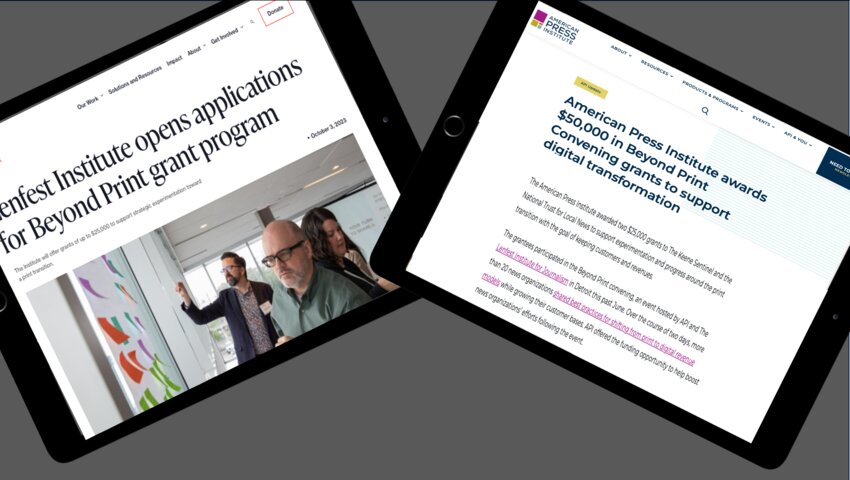4 Simple Techniques For Online News
4 Simple Techniques For Online News
Blog Article
The Greatest Guide To Online News
Table of ContentsOnline News Fundamentals ExplainedNot known Details About Online News The Online News PDFsSome Known Incorrect Statements About Online News
Additionally, we recognized four details sorts of information passion 4 teams of individuals with typical collections of news stories they take an interest in. Each of these 4 arsenals includes a varied diet plan of newspaper article that come from several various subject areas, cutting throughout conventional classifications such as 'tough' and 'soft' news, or national politics and entertainment.To the level that reporters prioritise newspaper article with public worth, they must trust their impulses as opposed to depending on the undependable seismograph supplied by 'Most Read' checklists. Despite well-publicised risks to the news industry, members of the public have actually never ever had much more news to select from than they do today.
We utilize factor evaluation combined with extensive meetings to comprehend people's information choices in the terms they themselves make use of, exploring their sense of information relevance and the degree of public passion it shows. Online News. Our approach enables hidden patterns in individuals's newspaper article preferences to arise, without enforcing the classifications that researchers and reporters usually consider granted
A Biased View of Online News
Lists of 'A Lot Of Review' or 'Many Shared' stories, as an example, are based on revealed news preferences as gauged by click-through rates, time spent, or other types of target market involvement with individual stories. Researchers have actually elevated issues regarding the photo disclosed by such statistics (e.g. Boczkowski and Mitchelstein 2013). Topics like enjoyment, celeb, scandal, and 'strange news' dominate 'A lot of Review' checklists, recommending readers de-prioritise the public events stories valued by reporters in favour of unimportant tales with much less autonomous value.

Finally, it is necessary not to assume that all stories in the star and 'weird' groups are democratically useless. On the contrary, current research suggests that apparently insignificant newspaper article are in some cases reviewed in ways that cross over right into autonomous issues (Eide and Knight 1999) and might become a driver for civic involvement (Papacharissi 2010).
We concur with Cherubini and Nielsen that 'all forms of analytics need to confront the restrictions entailed in using quantitative indicators to comprehend the unpleasant and varied realities of exactly how individuals engage with journalism, why, and what it implies' (2016: 34). As the following area lays out, this research study is made to find alternate approaches for understanding people's rate of interest in public events information.
The Facts About Online News Uncovered
Stories were also selected for prospective long-lasting rate of interest; breaking news might not be included, because the study was brought out over several weeks. This report draws mainly on results of the card sorting in stage 3. For this workout, each tale was stood for on a straightforward card revealing a heading and a short subheading, published in a neutral typeface (see Box 1 and Appendix A).
Individuals were handed the 36 newspaper article cards and asked to sort them into 3 heaps: stories they would possibly intend to check out if they discovered them online, in print, or on social media; tales they possibly would not intend to read; and in between a heap with tales they may want to read, time and area allowing.
They were also informed they can change the placement of any type of card up until the total arrangement revealed their news tale choices. When finished, find here the grid hence showed individuals' ranking of each story about the other view it 35 newspaper article. Figure 2 One individual's ranking of the 36 news tale cards between 'Likely to read' and 'Not most likely to check out' By mathematically connecting the story positions of the 24 individuals using factor evaluation, we are able to recognize four distinctive collections of study individuals whose news choices were most comparable.
For lots of, 'news' appears to consist of both difficult information ('the news') and softer selections ('newsy points'). The ultimate arbiter of whether they wind up engaging with tales is perceived importance, irrespective of where the tale falls on that continuum. Online News. People in some cases locate it hard ahead up with explicit reasons that they would certainly, or would certainly not, check out a tale: what makes it relevant or otherwise is made a decision on an intuitive basis
6 Simple Techniques For Online News

(Elizabeth P15) Overall however, individuals discuss their importance priorities fairly lucidly as they sort the 36 newspaper article cards, and show an eager understanding of the business motivations that cause the varied information fare they stumble upon daily. As one discusses, So the most likely, for me, would be either things that are mosting likely to effect on me personally, or points that I have an energetic interest in.

Report this page